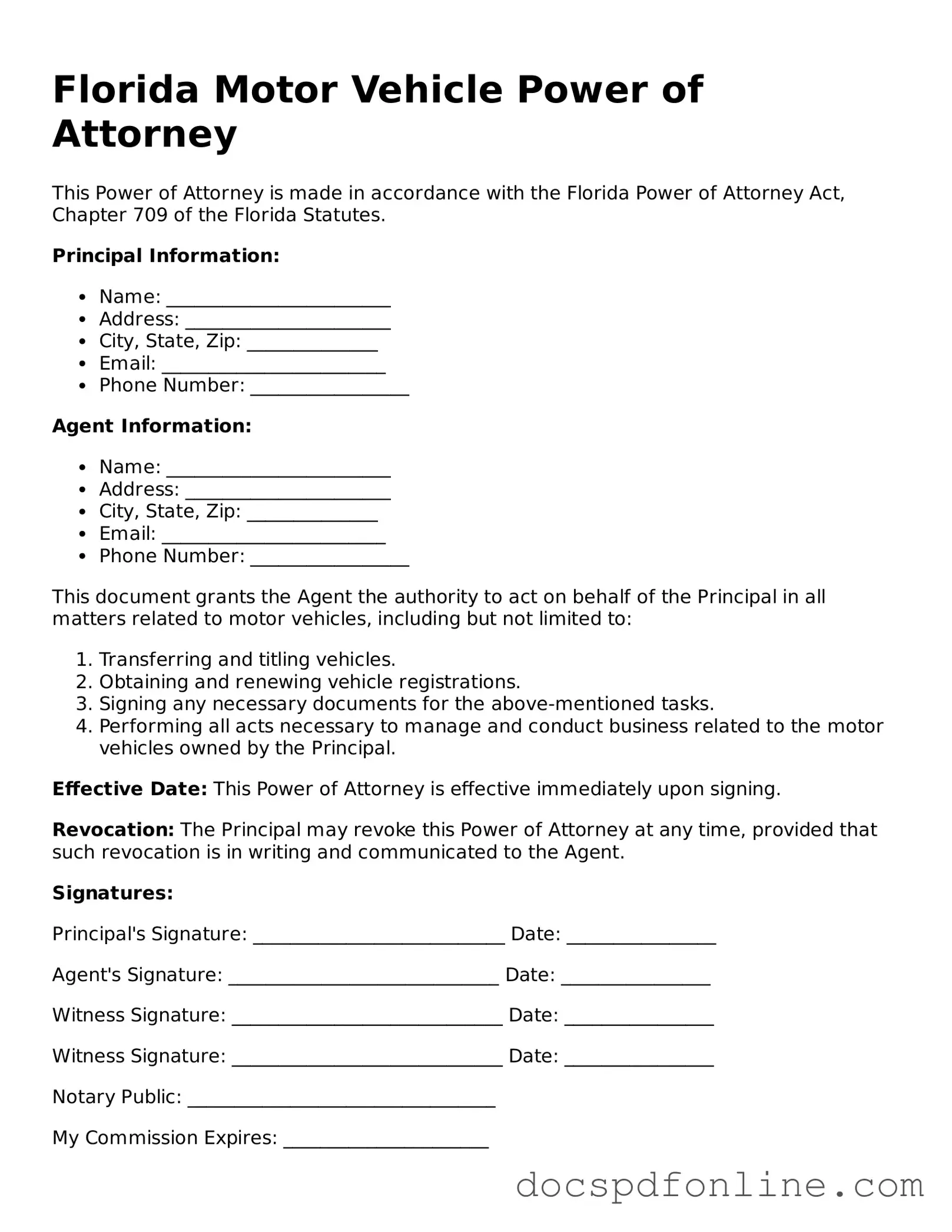Legal Motor Vehicle Power of Attorney Template for Florida
The Florida Motor Vehicle Power of Attorney form is a legal document that allows one person to authorize another to act on their behalf regarding motor vehicle transactions. This can include tasks such as registering a vehicle, transferring ownership, or obtaining a title. Understanding how to use this form can simplify processes related to vehicle management in Florida.
Launch Editor Now

Legal Motor Vehicle Power of Attorney Template for Florida
Launch Editor Now
Save time — finish this form fast
Finish Motor Vehicle Power of Attorney online — edit, save, download made easy.
Launch Editor Now
or
↓ PDF File
